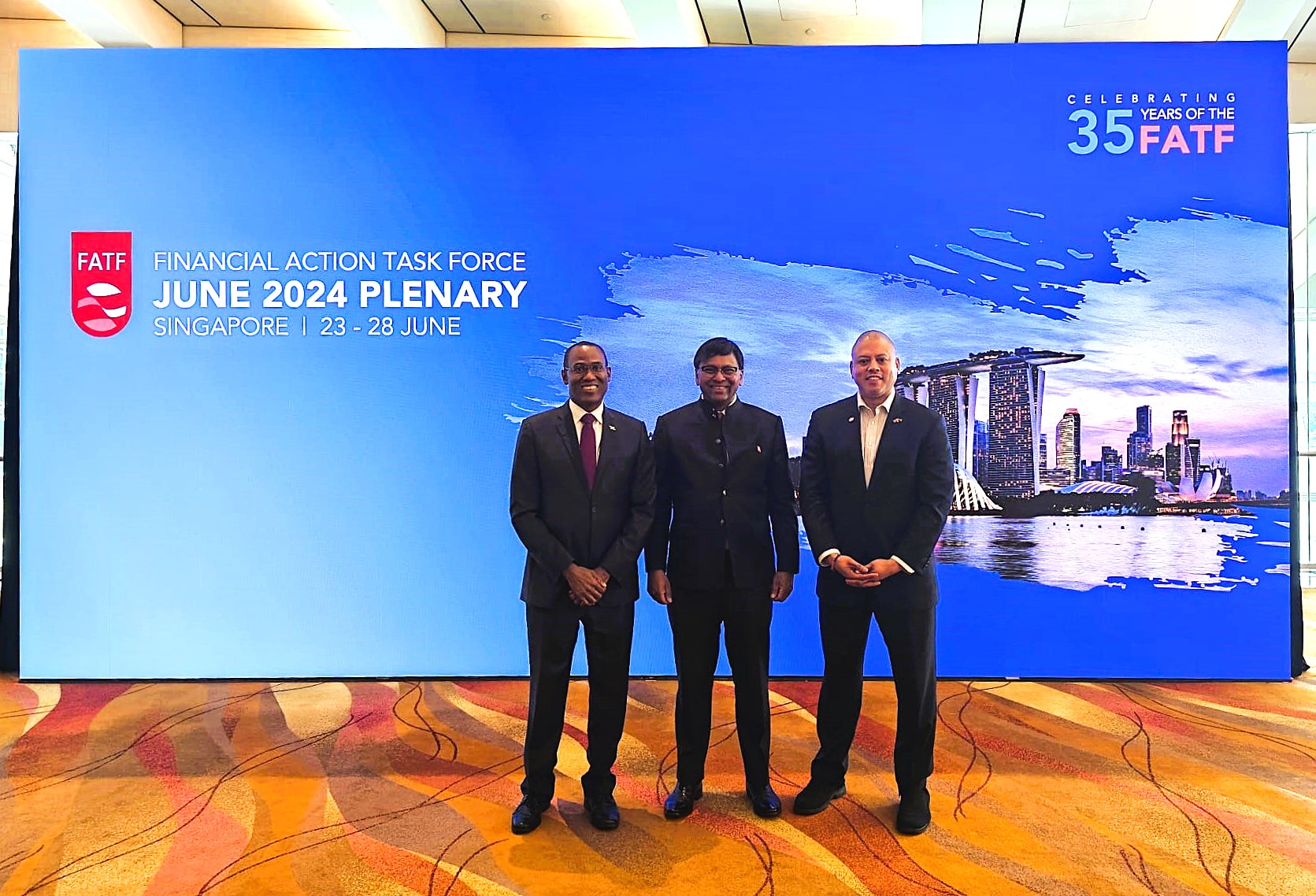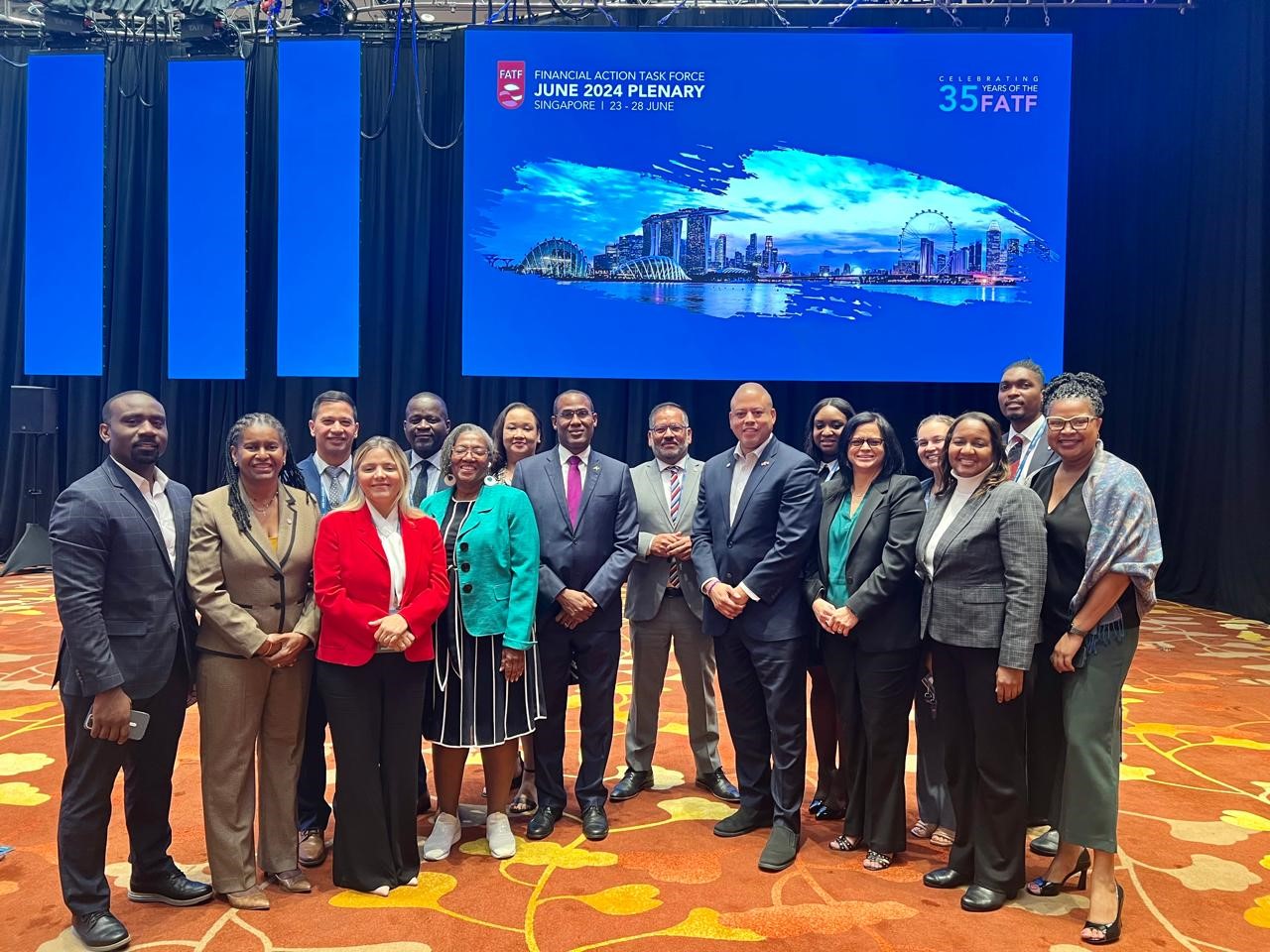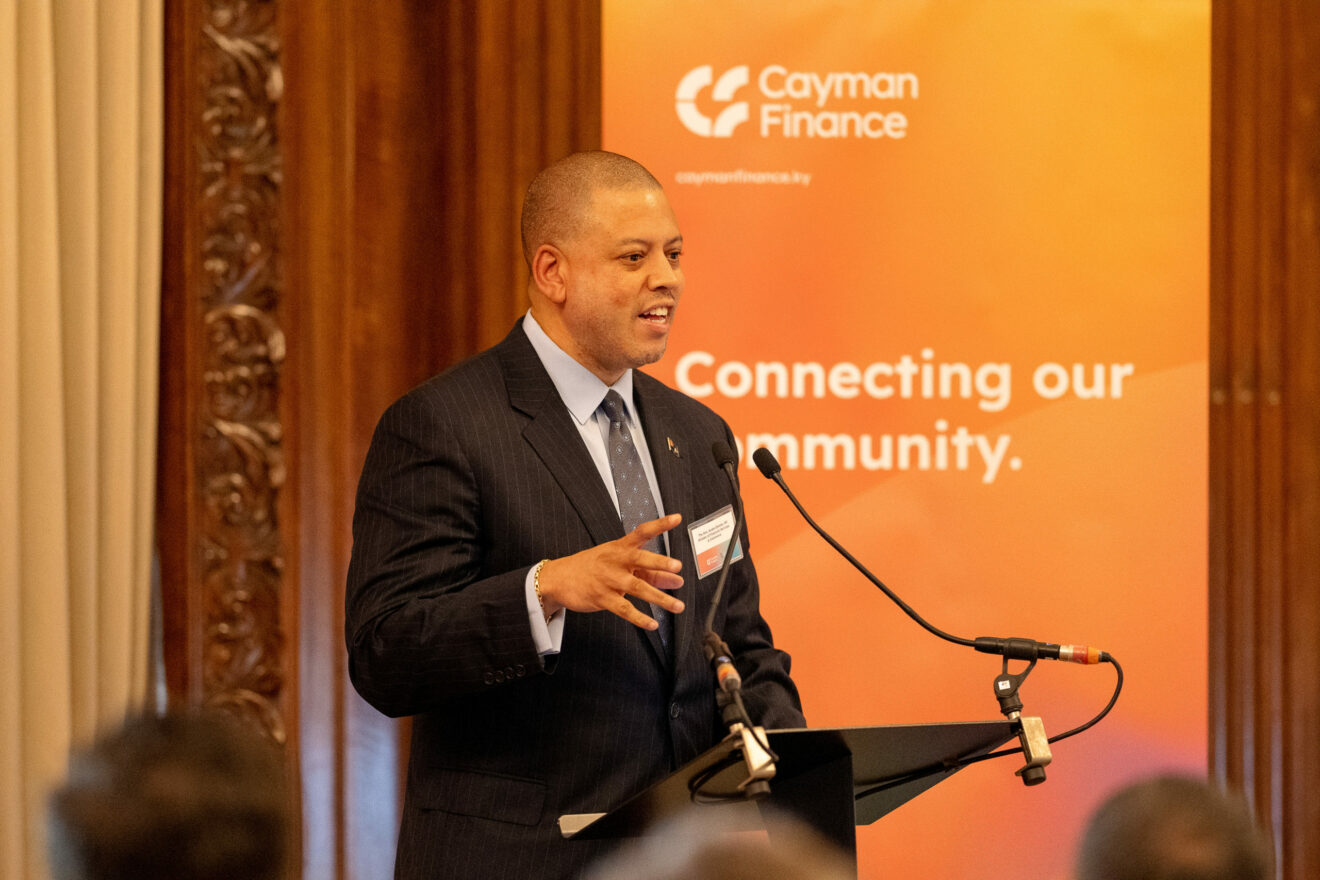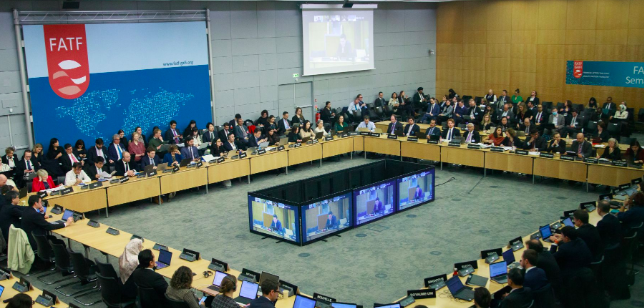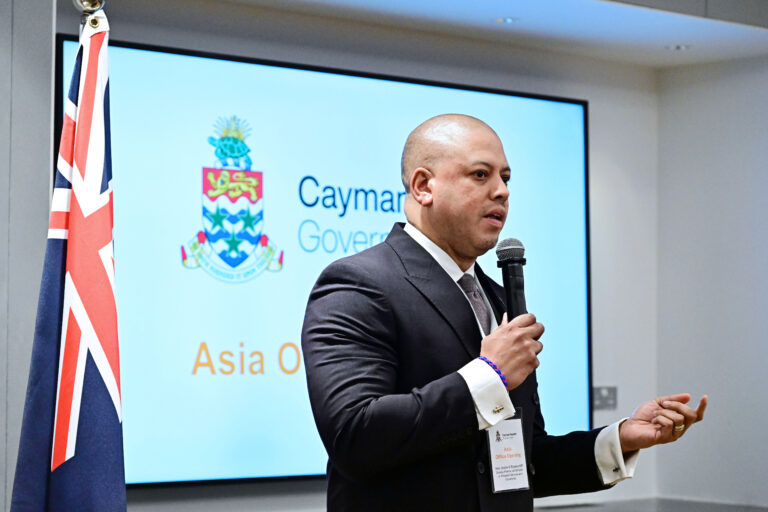
Deputy Premier André Ebanks officially opened government’s Asia office in Singapore on 25 June.
Deputy Premier and Minister for Financial Services and Commerce André Ebanks led a Cayman Islands delegation to Singapore for a week of meetings and events, including the highlight of officially opening government’s Asia office.
The Ministry of Financial Services said in a press release during the week:
- The deputy premier participated in the invite-only European Commission (EU) and Financial Action Task Force (FATF) organised side-event discussion on beneficial ownership (BO) on Sunday, 23 June;
- officially opened government’s Asia office, located in Singapore, on 25 June;
- attended the FATF Plenary from 26-28 June;
- spoke during Cayman Finance’s government and industry roundtable on 27 June; and
- attended the FATF and United Kingdom Financial Conduct Authority (UK FCA) organised roundtable on anti-money laundering (AML) supervision for designated non-financial businesses and professions (DNFBPs), which was hosted by the British Chamber of Commerce branch in Singapore on 28 June.
For EU-FATF’s beneficial ownership event, the deputy premier joined a panel which included representatives from Belgium, Israel, New Zealand, and Singapore, while numerous other FATF member countries were in attendance such as the UK and USA.
Characterising the discussion as interactive, insightful and constructive, he said panellists focused on their respective experiences in establishing beneficial ownership central registries, and the different approaches of ensuring that adequate, accurate and up-to-date beneficial ownership information is available to competent authorities.
“Beneficial ownership refers to individuals who ultimately own or control an entity,” he said. “It’s a powerful tool that helps law enforcement, tax and other authorities to deter, detect, prosecute, and sanction financial and other crime. This event provided an opportunity to highlight the strength of the Cayman Islands BO framework and our proactive planned enhancements.”
The reception for the Asia office opening was hosted by government’s representative in the Asia office, Gene DaCosta, at Swissotel The Stamford in Singapore. In addition to the deputy premier’s remarks, Cayman Islands Governor Jane Owen sent greetings and congratulations in a video message.
With the FATF plenary held in Singapore, a number of officials from FATF member countries and the Caribbean Financial Action Task Force (CFATF), which supports FATF’s work in the region, attended the office opening as did elected officials, civil servants, regulators and industry members from the Cayman Islands, the Caribbean, the UK and Asia.
Ebanks said another positive development of the visit was Jamaica’s removal from FATF’s list of jurisdictions under increased monitoring for AML deficiencies, which FATF announced at the end of its plenary.
“Having experienced that achievement ourselves earlier this year, we understand the effort required to satisfy the FATF standard,” the deputy premier said. “We join the CFATF in heartily congratulating Jamaica, for underscoring that Caribbean countries are participating in the global fight against illicit crimes and upholding international AML standards.”
Following the plenary the Cayman Islands delegation kept momentum with the Cayman Finance-hosted government and industry roundtable, which Cayman Islands Monetary Authority (CIMA) representatives also attended.
“This roundtable exchanged extremely valuable suggestions on how Cayman Islands financial services can be innovated and better integrated into Asia’s commercial and regulatory frameworks,” he said.
The week concluded with the FATF/UK FCA roundtable about designated non-financial businesses and professions, a group that includes law and accounting firms. This roundtable focused on AML practices and developing standards for DNFBPs. It was attended by private sector practitioners, government officials, regulators and a representative of the International Federation of Accountants.
In addition to deputy premier, the Cayman Islands delegation included the Ministry’s Chief Officer Dr Dax Basdeo; Government’s Deputy Representative for Financial Services to Europe Julie Campbell; CIMA’s Managing Director Cindy Scotland, Head of the Anti-Money Laundering Division Judiann Myles, and Deputy Head of the Anti-Money Laundering Division Megan Powell; and Cayman Finance CEO Steve McIntosh.
